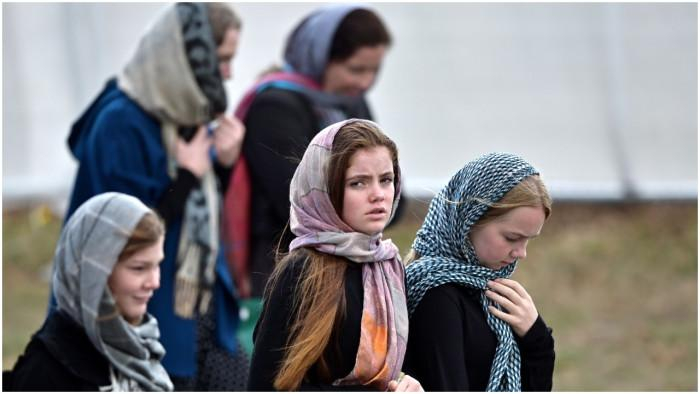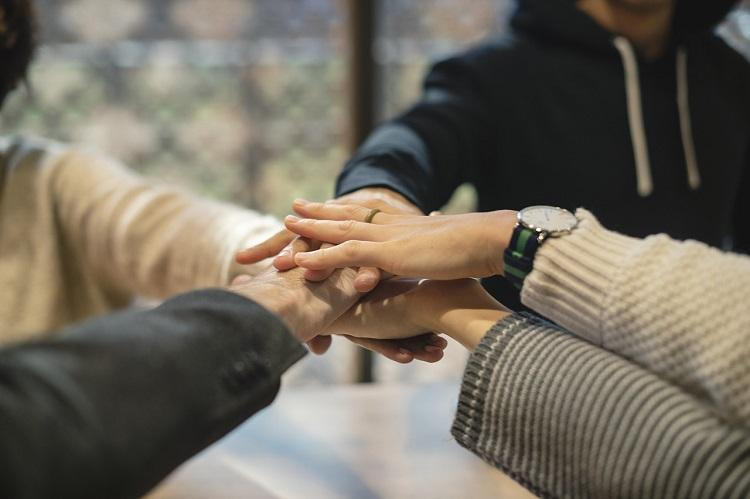Wearing the Hijab in Solidarity - What Do We, as Muslim Women, Think About This?
Lifestyle
|
Apr 11, 2019
|
6 MIN READ

I worry about you, a friend (not Muslim) recently told me. There is so much hatred and acts of violence in the world. So many Muslims targeted, and so much awful rhetoric being stoked by those in power. And you are so visible. You’re out there, online and in the world, in your headscarf. Is it scary? Do you ever not want to wear it?
Is it scary? Yes, sometimes it is, I told her. Do I ever not want to wear it out of fear? Absolutely not. But that is just me, and I can’t speak for all hijab-wearing women, I said to my friend. She then asked, I’ve been wondering what it’s like to wear a hijab. What do you think if I wore it in solidarity with you to the interfaith event at the mosque?
This kind offer from my friend came on the weekend after the horrible terrorist shootings at Masjid Al Noor and the Linwood Masjid during Jummah (Friday) prayers, resulting in the deaths of 50 Muslims in Christchurch, New Zealand.

In the days following the terrible mass shootings, hundreds of New Zealand women, including Prime Minister Jacinda Arden, as well as other non-Muslim women worldwide donned the hijab out of respect and solidarity at interfaith events, Friday prayers and vigils held worldwide. As one of the most visible (and most talked-about) identifiers of a Muslim woman, wearing the hijab in support of Muslims is a common action by those who are not Muslim and wish do something in support and solidarity, show respect or try and understand the faith more.
The Hijab in All Its Complexities
It’s also a hotly-debated act of solidarity in discussions among Muslim women. So let’s talk about this - the different ways we feel about it, if this is a welcomed act of solidarity, how does it convey solidarity, and some key things we all need to realize about what it means to be Muslim and wear (or not wear) a hijab. I think there are three things we can agree on:
The last point is one that is important to dwell on a bit, because it worth emphasizing when it comes to acts of solidarity and the intricacies around the wearing of hijab. Masih Alinejad and Roya Hakakian recently wrote an article for the Washington Post touching upon this, how there are “two types of hijab” - “ … the democratic hijab, the head covering that a woman chooses to wear, and the tyrannical hijab, the one that a woman is forced to wear. In the first kind, a woman has agency. She sets the terms of her hijab. … In the second kind of hijab, the woman has no agency.”
Setting aside Islamic rules and guidelines on hijab (must Muslim women wear it, and what modest dressing actually means, which Haute Hijab’s CEO Melanie wrote about here and Anse Tamara Gray wrote about here), it is true that there are Muslim women who wear it and those who don’t. There are countries and governments that force hijab and modest dressing and those that don’t. And, there are also countries and governments trying to stop women from wearing the hijab in public sectors altogether (see here, here and here).
Also, while wearing hijab is an identifiable Muslim practice, Muslims are not the only people who wear some form of head covering - we don’t have ownership over this. Covering one’s head out of respect, modesty or to show humbleness in front of God (among many other reasons) is practiced by people of many other faiths.
What Constitutes Solidarity and Allyship?

Solidarity also can come in many forms. It’s easy and identifiable to wear the hijab as a non-Muslim to show support. It’s a positive gesture, and despite all arguments that one cannot learn at all about the meaning and challenges of wearing hijab just by donning it for a period of time - I have to say that it can spark a pause, a step towards understanding or even just thinking about how visible you become when you wear hijab. It’s a gesture yes, and often well intended. And, I do appreciate it. I simply would not come down on someone or outright tell them “No” if they wanted to wear it in solidarity.
However, I would point out that there are many ways to support a fellow Muslim woman, to show solidarity and be a real ally - cultivate authentic friendships with Muslims and listen to them. Reject anti-Muslim rhetoric. Read about and spend some time understanding and researching the roots of white supremacy and anti-Muslim hate (which led to the horrible shootings in New Zealand) and what you can do to fight this. Ask genuine questions.
As my friend Hind Makki wrote recently on Facebook, “Critiquing certain acts of solidarity with a minority by a majority does not mean that the intention behind that act of solidarity itself is being criticized. We welcome solidarity (who doesn't?) and intention IS important. But also important is centering the voices and actual experiences of the affected community, not the interpretation by outsiders of those experiences.”
Sahar Pirzada of HEART Women & Girls takes the critique one step further by saying (also on Facebook), “If you want to be in solidarity with me, do not show up … wearing a hijab thinking that does anything to challenge the systemic issues that have led to white supremacist violent attacks on my community,” adding, “We need more than performative solidarity.”
So, you can see why many Muslim women land all over the spectrum when it comes to the question of whether wearing the hijab as an act of solidarity a good and welcomed thing. Every year when World Hijab Day rolls around on February 1, this debate about non-Muslims wearing a hijab emerges again, or when non-Muslim women engage in hijab-wearing experiments and document how they feel or were perceived.
So, Is Wearing Hijab in Solidarity Helpful?

More than four years ago, Wheaton College (an Evangelical private college in the midwest) terminated the employment of Professor Larycia Hawkins, who had been wearing the hijab in solidarity with her students for the duration of Advent. Administrators later said her termination wasn’t about her wearing hijab but rather because of her statements that Christianity and Islam share many things and that the God of Muslims is the same as the God of Christians.
Nonetheless, many understood her firing to be a punitive response to her decision to put on a headscarf. Soon after, a spate of articles appeared telling non-Muslim women to stop wearing the hijab in solidarity. Several others wrote in support of Hawkins, including myself:
... Muslim women who choose to wear the [hijab], having searched their hearts, their deen or whatever motivates them to do so. I am one of these women. Muslim women also take off their headscarf after searching their hearts, their deen or whatever motivates them to do so. These are all aspects of the headscarf-wearing experience, which is but one aspect of being Muslim.But, the fact is that for better or for worse, [haters] are honing in on people who do choose to wear the headscarf – as targets, or as a way they can identify and stand up for Muslims.I welcome the latter.
And, I still do. I welcome with love any woman who isn’t Muslim and wants to wear a headscarf or hijab in solidarity with me. It’s a nice thing to do. However, consider other (and more effective) things non-Muslim women can do in solidarity or in support of Muslim women (as mentioned above). I know in saying it is a nice thing to do - that will be the very thing that irritates other Muslim women, like my friend and fellow Haute Hijab writer Layla Abdullah Poulos, who in a Radio Islam interview, said, “Donning a headscarf may be nice and encouraging for some people in some ways, but don't limit it to that.
"Go back into your cultures, societies, businesses, educational institutions and homes and inroads about anti-Muslim rhetoric in the system itself. Muslim women are still in danger. ... If you want to talk about being a real ally in helping me to dismantle my oppression, let's come together as peers."
She is right. However, I also believe that people learn and grow and seek change in all manners. Four years ago Larycia Hawkins lost her job for wearing the hijab in solidarity. It wasn’t just about being nice.
And so, I repeat what I wrote here, what I said to my friend when she asked me if she should/could wear a hijab in solidarity at an interfaith event: If you want to place a cloth on your head as a show of solidarity with Muslims, do so. I welcome and appreciate it. But, let’s talk about the complexities of hijab wearing. And please know that it isn’t the only thing you can do to lend support, understand Muslims better, show solidarity and facilitate change.
Subscribe to be the first to know about new product releases, styling ideas and more.
What products are you interested in?

